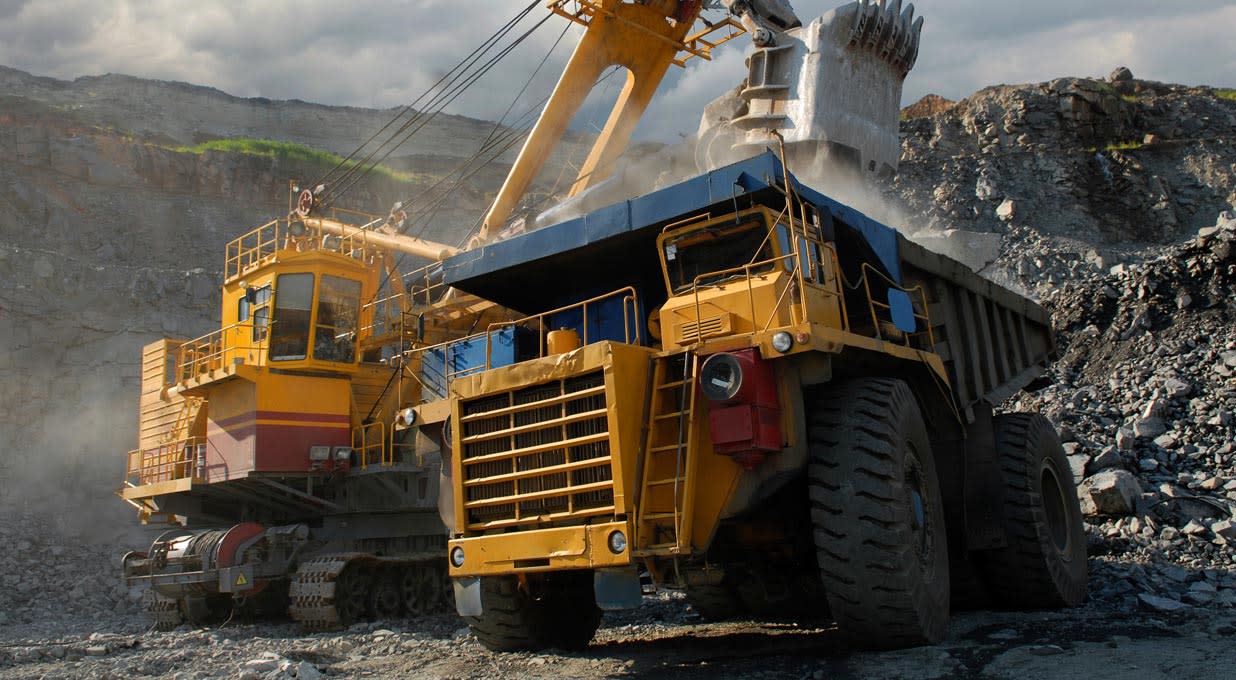BHP has confirmed it has made a proposal to Anglo American to buy the business in exchange for shares in BHP. The initial proposal requires Anglo to de-merge its Platinum and Kumba Iron Ore businesses to its shareholders prior to completion.
The terms value Anglo’s total share capital (including the Platinum and Kumba assets) at £31.1bn, or £25.08 per share.
BHP now has until 22 May 2024 to make a firm offer.
The shares fell 3.0% in early trading.
Our view
A bold offer to buy a good chunk of Anglo American’s assets in exchange for shares has caused quite a stir in mining land. This could rapidly accelerate BHP’s ambitions in metals required for the energy transition, like copper, without needing to shed a load of cash. We think the move to ask Anglo to spin out iron ore and platinum assets before any deal is completed is a clever one – BHP already has iron ore well covered.
We’ll have to wait and see if BHP is willing to make a better offer, the £31.1bn implied valuation for Anglo is probably not going to get the job done.
Half year results back in February were broadly as expected, the only question mark being over the outlook for Nickel given BHP wrote down the value of one of its assets.
Iron ore is BHP's cash cow, and while demand's been robust in China and India, the former is somewhat of a question mark. The Chinese reopening hasn't been as strong as some would like, and the unknown impact of recent stimulus policies is a short-term risk.
On the cost side at least, BHP has some aces up its sleeve. Western Australia Iron Ore, which produces the bulk of the group's iron ore, has some of the world's lowest production costs. The same can be said for the Escondida copper mine in Chile. That feeds into margins that tend to be higher than its peers. A decent place to be given costs are remaining stubbornly high.
Looking to the future, BHP's focused on capitalising on the energy transition. Expanding operations in copper and nickel are key drivers of future growth, and the Anglo offer shows intent. But for now, the bulk of the cash investment is going into decarbonising existing operations, expanding iron ore production at existing sites and bringing the Jansen project online.
The Jansen project is set to deliver one of the world's largest Potash mines. Potash, a naturally occurring mineral fertiliser, is a little different to the group's other assets - since farmers need it regardless of the economic climate.
This is a real growth area for the business, and a strategic shift that should provide shelter from more cyclical commodities. BHP's aiming to get first production into 2026. It's a hefty investment though, and execution risk is high.
Improving the debt position will probably be key for the second half of the year, so additional payouts in excess of the default 50% of profits are unlikely in our view. Nothing is guaranteed.
Low-cost, high-margin assets are attractive and there are several medium-term growth drivers in the mix. We like the look of a potential Anglo deal, though it’s a long way off from being a reality. China remains a short-term question mark and BHP's premium valuation puts it first in the firing line if economic conditions, and commodity prices, end up worse than expected.
Environmental, social and governance (ESG) risk
Mining companies tend to come with relatively high ESG risk. Emissions, effluences and waste and community relations are key risk drivers in this sector. Carbon emissions, resource use, health and safety and bribery and corruption are also contributors to ESG risk.
According to Sustainalytics, BHP’s management of material ESG issues is strong.
BHP demonstrates strong ESG commitment with a dedicated board committee overseeing sustainability goals. They are notably aiming for a 40% female workforce by 2025. BHP is positioning itself for a low-carbon future by actively seeking out copper and nickel deposits, which are crucial metals for green technologies. There is an ongoing lawsuit relating to a dam spill back in 2015 from a joint venture that BHP has a 50% stake in. Charges have already been taken in preparation of further fines, but the outcome is unknown. BHP still owns and operates a small thermal coal business, with plans to cease operations by 2030.
BHP key facts
All ratios are sourced from Refinitiv, based on previous day’s closing values. Please remember yields are variable and not a reliable indicator of future income. Keep in mind key figures shouldn’t be looked at on their own – it’s important to understand the big picture.
This article is not advice or a recommendation to buy, sell or hold any investment.No view is given on the present or future value or price of any investment, and investors should form their own view on any proposed investment.This article has not been prepared in accordance with legal requirements designed to promote the independence of investment research and is considered a marketing communication.Non - independent research is not subject to FCA rules prohibiting dealing ahead of research, however HL has put controls in place(including dealing restrictions, physical and information barriers) to manage potential conflicts of interest presented by such dealing.Please see our full non - independent research disclosure for more information.


